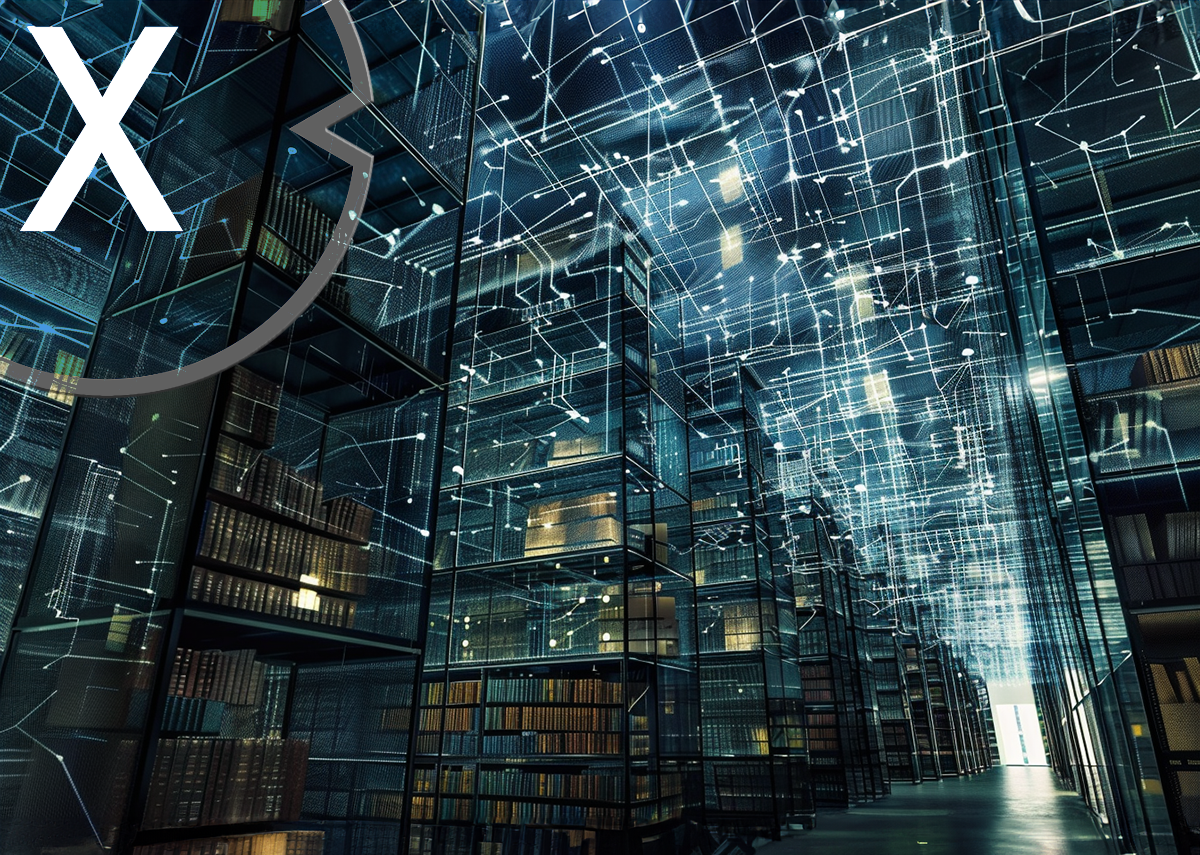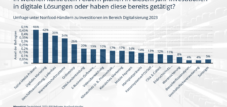
Why Wikipedia was a successful collaborative platform in previous years and will probably lose to AI language models in the future - Image: Xpert.Digital
🌐🔍 Free access to knowledge: The new challenge for Wikipedia
📖 Wikipedia has undergone unprecedented development since its founding in 2001. It is considered one of the greatest achievements of the Internet and stands for free access to knowledge. Millions of people worldwide have not only used the platform as a source of information, but have also actively contributed to continually expanding the offering. But while Wikipedia has long been considered a model for collaborative knowledge platforms, it is now facing a new challenge: the rapid development of AI language models that are capable of providing answers to complex questions in seconds. This development calls into question the future of Wikipedia and forces us to reflect on the value and role of human collaboration in an increasingly AI-dominated world.
🌟 The strengths of Wikipedia
Over the years, Wikipedia has had several strengths that set it apart from other platforms and information sources.
1. Free knowledge for everyone
Since its launch, Wikipedia has provided free access to a wide range of topics. This principle of “free knowledge” has given millions of people worldwide access to information that might otherwise have been inaccessible. The concept that everyone can access knowledge, regardless of their background or financial means, was and remains one of the platform's greatest strengths. It also encourages users not only to consume information, but also to actively participate in expanding and improving this knowledge.
2. Collaborative model
The heart of Wikipedia is the wiki principle, which allows users to edit articles directly in the browser. This open structure encourages broad participation and enables everyone, regardless of their expert status, to contribute to the world's body of knowledge. This model has made Wikipedia a dynamic and constantly evolving encyclopedia. The quality and accuracy of the articles is ensured by feedback and revisions from a global community committed to making knowledge freely accessible.
3. Rapid growth and development
Thanks to its openness and collaborative model, Wikipedia grew faster than any other encyclopedia before it. The previous project, Nupedia, which was based on a stricter and more formal editorial process, did not show nearly the same development. Within just a few years, Wikipedia has managed to create millions of articles in different languages and establish itself as the world's leading knowledge platform.
4. Language diversity and global reach
Another key advantage of Wikipedia is its linguistic diversity. There were already 18 language versions at the end of 2001, and today there are more than 300 different language versions, making the platform accessible in almost all parts of the world. This internationality helps Wikipedia appeal to a global audience and integrates the knowledge of many cultures and societies.
5. Quality assurance by the community
Despite the openness of the system, Wikipedia has introduced mechanisms to ensure the quality of its content. Articles can be divided into different rating levels such as “excellent” or “worth reading”, which motivates authors to create particularly high-quality articles. These quality assurance mechanisms have helped to increase user trust in the information on Wikipedia.
🤖 Challenges presented by AI language models
In recent years, the development of artificial intelligence and in particular AI language models such as ChatGPT, which are based on large language models (LLMs), have brought a new dynamic to the world of knowledge transfer. These language models are capable of generating answers to almost any question, at a speed that often dwarfs human efforts.
1. Convenience and speed
A major advantage of AI chatbots is their ability to provide quick and accurate answers. Many users appreciate the convenience of getting an immediate answer to a question without having to wade through lengthy articles. While Wikipedia provides detailed information on a topic, AI language models tend to present the most relevant facts in a short, concise form. This efficiency could lead to more people choosing AI-powered answers instead of searching Wikipedia.
2. Decline in user numbers
As AI models become more widespread, there is a risk that Wikipedia will become less important and the number of active users will decline. This would have serious consequences for the platform, as Wikipedia relies on the contributions and corrections of its users to maintain the quality and topicality of its content. A decline in user numbers could result in articles being updated less frequently and the platform as a whole becoming less dynamic.
3. Quality problems
With fewer active contributors, there is also a risk that the quality of Wikipedia articles will decline. Fewer corrections and revisions could result in outdated or incorrect information staying online longer. This would be particularly problematic at a time when current and accurate information is of utmost importance.
4. Monopolization of knowledge
Another problem is the potential monopolization of knowledge by large AI companies. While Wikipedia is a platform for the free dissemination of knowledge, AI language models are often developed by companies pursuing commercial interests. This could lead to a concentration of knowledge transfer in the hands of a few actors, which endangers the diversity and openness of the Internet.
5. Risks of AI-generated content
Using AI to support Wikipedia also carries risks. While AI could help create or improve articles more quickly, there is also the risk of errors and bias. AI models are not perfect and can generate false information, so-called “hallucinations”. This plausible but false information could undermine the credibility of the platform if not carefully checked and corrected.
🚀 Opportunities for Wikipedia
Despite the challenges, there are also opportunities for Wikipedia to adapt to the new reality and continue to play an important role in the transmission of knowledge.
1. Collaborate with AI developers
Closer collaboration between the Wikipedia community and AI language model developers could open up new opportunities. For example, AI could be used to automate routine tasks such as updating statistics or translating articles into other languages. This would allow human contributors more time and space to focus on more complex topics and analysis.
2. Strengthening the collaborative nature
Another important step could be to further strengthen the collaborative nature of Wikipedia. While AI models are based on data and algorithms, Wikipedia's strength lies in the diversity of human perspectives and experiences. By emphasizing human creativity and collaboration, Wikipedia could differentiate itself from AI-powered information sources and remain an indispensable resource.
3. Awareness of quality and credibility
At a time when misinformation and fake news are increasingly a problem, Wikipedia's credibility and quality could be an important asset. Through stricter quality controls and even closer community collaboration, the platform could ensure that its content continues to be trustworthy and accurate.
🔮 The collaborative nature or models?
The future of Wikipedia in a world increasingly dominated by AI language models is uncertain. There is no question that AI models like ChatGPT are capable of delivering information quickly and efficiently. But Wikipedia's strength lies not only in its provision of information, but also in its unique collaborative nature. While AI models are based on data and algorithms, Wikipedia brings the diversity of human perspectives and experiences to the forefront. By further expanding its strengths and at the same time integrating innovative technologies such as AI, Wikipedia could continue to play an important role in knowledge transfer in the future.
📣 Similar topics
- 📚 Wikipedia: Evolution in the digital age
- 🤔 Challenges and opportunities for Wikipedia
- 🌐 Knowledge worldwide: The strengths of Wikipedia
- 🤖 AI in transition: threat or partner for Wikipedia?
- 🧠 Collaborative knowledge as the key to the future
- 🚀 Innovation in information dissemination: Wikipedia and AI
- 🔥 The battle for users: Wikipedia vs. AI models
- ⚖️ Quality vs. Speed: The Role of Wikipedia
- 🔗 Community approaches as a future strategy
- 🌟 Wikipedia and the balancing act in an AI world
#️⃣ Hashtags: #FreeKnowledge #Collaboration #KILanguage Models #WikipediaFuture #Knowledge Transfer
We are there for you - advice - planning - implementation - project management
☑️ Industry expert, here with his own Xpert.Digital industry hub with over 2,500 specialist articles
I would be happy to serve as your personal advisor.
You can contact me by filling out the contact form below or simply call me on +49 89 89 674 804 (Munich) .
I'm looking forward to our joint project.
Xpert.Digital - Konrad Wolfenstein
Xpert.Digital is a hub for industry with a focus on digitalization, mechanical engineering, logistics/intralogistics and photovoltaics.
With our 360° business development solution, we support well-known companies from new business to after sales.
Market intelligence, smarketing, marketing automation, content development, PR, mail campaigns, personalized social media and lead nurturing are part of our digital tools.
You can find out more at: www.xpert.digital - www.xpert.solar - www.xpert.plus

